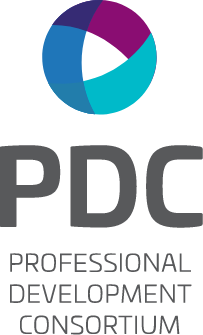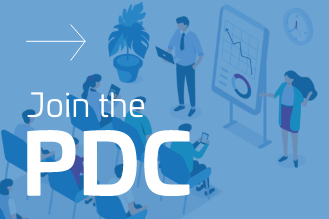You are here
4 Coaching Strategies to Use Even if You Aren’t a Coach
May 26, 2021
By Reva Pollack
Getting my coaching certification in 2020 was a transformative experience, as it showed me a new way to approach problem-solving and goal-setting. As the new Volta coaching survey demonstrates, many law firms are investing in coaching as the value of having trained coaches on staff becomes more apparent. A coach serves as a judgment-free sounding board to help move past obstacles or more generally promote growth and development.
Coaching is a difficult skill to master. Watching a good coach at work is like watching a wizard: you see the epiphanies appear as if by magic. Even without undertaking an extensive coaching program, there are coaching principles that can be incorporated into your work – and your trainings – that can improve employee engagement and get better results.
Ask the Obvious Question
In coaching, when someone shares a goal we follow it up with the question, why is that important to you? This can feel ridiculously self-evident – I want to improve my hours so I progress in my career, or I want to spend more time with my family because I love them. But often the answer I hear from my clients surprises me. What seemed so obvious and intuitive turned out to be obvious only to me. So instead of assuming we know the answer because it is self-evident, ask the obvious question. Taking away the assumptions helps improve communication and eliminate misunderstanding. It also forces a person to challenge their own assumptions when you ask the obvious question – something they might not have done yet.
Assume Competence
One of the ICF core competencies is that we acknowledge that clients are responsible for their own choices. This actually removes a huge burden from the coach. It isn’t my job to make you do the “right” thing. I can work with you to help you examine your options and find your path, but in the end the decision is yours to make. When we assume someone is competent to make their own decisions the relationship becomes a partnership, and both parties end up more invested in the process. And when people feel respected and empowered, it also makes them more open to the idea of change.[1]
Listen to Them, Not to You
How often have you been in a conversation and realized that you missed what someone just said because you were thinking about your next comment? Or, even worse, about something completely unrelated to the conversation? Our “inner voice” can be a distraction that keeps us from listening actively when interacting with others. Instead we mentally make judgments or think about what we expect to hear next. Try to quiet that internal voice and focus just what on the other person is saying, and see what you notice when your attention is fully engaged. Even better, focus on more than just their words – look at their body language, listen to tone of voice, and notice that you can pick up more of what’s unsaid in addition to what is being said.
Find the Perspective Before Offering Solutions
When we hear of a problem, many of us want to help fix it. I care about you and I want you to be happy – so let me help you be happy! But problems are complex and my suggestions may or may not be useful for what you need. So instead of diving in with possible solutions, ask questions to help someone understand the perspective they are bringing to the conversation. Our perspectives influence what we think is possible, and often we don’t even realize we have a perspective. By adjusting it, we can see a new world of possibilities.
For example, someone complains about being unhappy working in their law firm. Instead of immediately suggesting that they consider going in-house, ask them what their ideal job would look like, what’s important to them, or how they define success. The answers to these questions can help them understand where the unhappiness is coming from, and solutions that they never previously considered may appear.
Coaching techniques may not feel natural at first, especially if our inclination is to immediately jump in with advice, guidance, and direction. The more we practice stepping back, asking questions, and listening without judgment, the easier it is to curb that impulse and let others take the lead in finding their own solutions, which can produce better and more meaningful outcomes.
We advise that you check out these additional resources:
What It Takes to Coach Your People https://www.ccl.org/articles/leading-effectively-articles/what-it-takes-to-coach-your-people/
Use Active Listening to Coach Others https://www.ccl.org/articles/leading-effectively-articles/coaching-others-use-active-listening-skills/
How to Have a Coaching Conversation https://www.ccl.org/articles/leading-effectively-articles/how-to-have-a-coaching-conversation/
Must-Have Coaching Skills for Managers and Leaders https://positivepsychology.com/coaching-skills-managers-leaders/
[1] See Adam Grant’s book Think Again for a great discussion about how people feel more open to changing their minds when they have their autonomy affirmed.



